Happy Wednesday Beauties!
I appreciate you all submitting your questions for Q & A Wednesdays. You asked so many good things – I’m excited to answer them all in the coming weeks.
Today I’m tackling a topic that I get asked about more than any other thing: how to get started with a career in the fitness/Pilates/wellness industry.
Today’s questions come from Kirsten C. I hope you find the answers helpful!
Kirsten started out by asking what certifications and trainings I went through to become a Pilates and barre instructor. If you’re curious, you can read the answers in “How To Become A Pilates Instructor.”
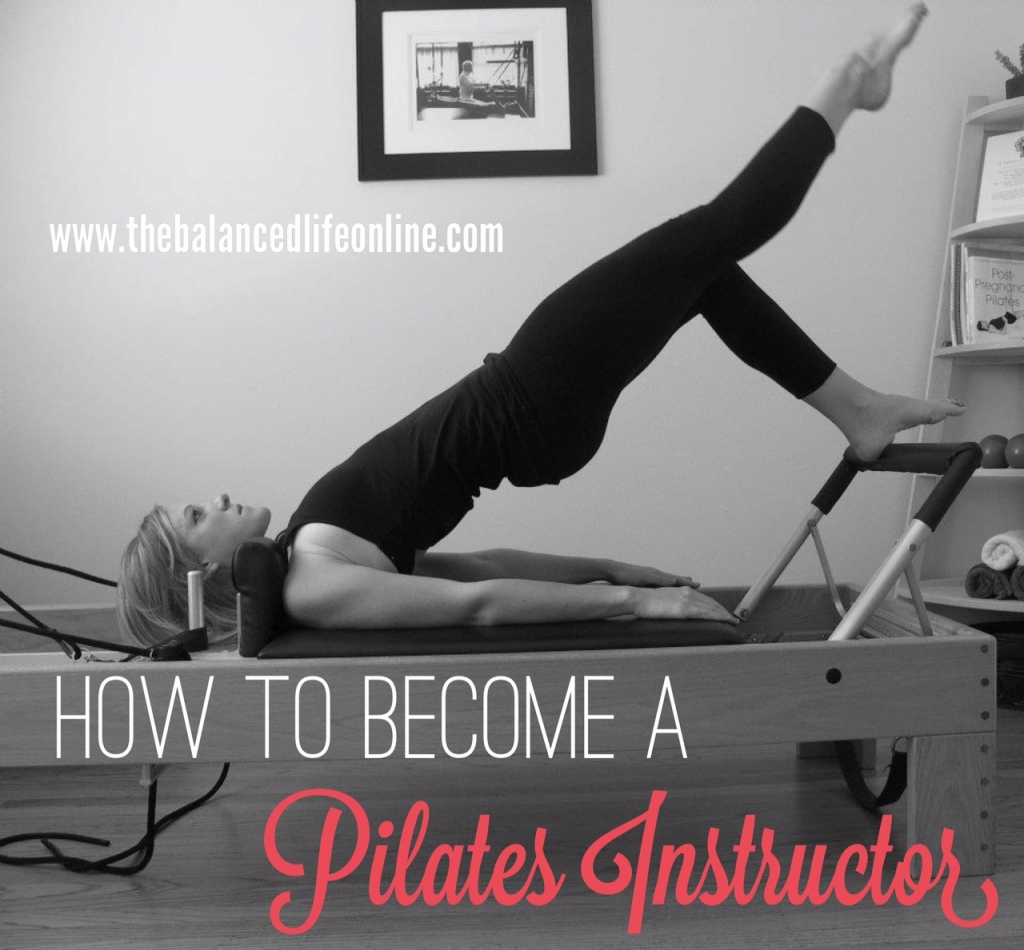
She went on to ask the following questions…
I noticed in your post that you were working full-time when you did your certification. I would also be working and was wondering what that schedule looked like in terms of weeknights/weekend classes?
Most comprehensive Pilates training programs are hosted on the weekends. So about 1 weekend per month I would attend class from Friday afternoon – Sunday afternoon. The weekend trainings lasted for approximately 6 months, the next 6 months was dedicated to completing my practice hours and student-teaching hours.
I also spent a few evenings per week taking Pilates classes (to get my practice hours) and spending time alone studying at home or in the studio. It was a lot of work, but it was something that I was very interested in so I enjoyed it.
At what point after you completed your training did you leave your previous day job and shift into teaching pilates full-time? How difficult was it to develop this new career?
It took awhile to turn Pilates into a full-time career. I continued working in commercial real estate development for about 6 months while I taught classes for friends (student teaching hours) and came up with a plan to make the transition.
I eventually took a big leap of faith (and a big pay cut) and started nannying part-time so that I could build up my teaching as well.
I recommend allowing at least a year to get your clientele and teaching schedule up to “full-time.” Full-time for a Pilates instructor is about 20-30 hours per week I would say. Although others may see that differently. I only recommend this career path to someone who is willing to work hard, stay committed even when the schedule is challenging and the pay is embarrassing. Because it will be at first.
When I started my career, I took all the early morning shifts that nobody wanted. I got creative and taught at a local studio, at a local college (a bi-weekly Pilates class as part of their physical education curriculum) and also started up classes in the park with friends.
It’s also important to keep in mind that every time you move, you essentially start over. It gets easier each time because you have more experience under your belt, but it is still a challenge of the job. Shortly after getting my clientele up and going in Santa Barbara we moved to Palo Alto. So I started all over again. In the bay area it took about a year to get back to place where I felt comfortable with my hours and income. I taught at
Equinox, trained in-home private clients and ran classes at
Stanford University.
And finally, any other advice for a currently full-time, non-fitness professional (me!) looking to transition to the fitness and wellness industry?
My first piece of advice is to make sure you love TEACHING as much as you love Pilates. It truly is a teaching profession. I spend most of time learning how to teach different clients, communicate in new ways and help people discover new ways of moving/being.
It’s also important to remember that just because you are a Pilates instructor, that doesn’t mean you’ll be doing Pilates all day. I have a much harder time fitting in my workouts these days than I did when I was working a more traditional job. There are perks (like sneaking in short workouts in between clients) but there are also challenges (sometimes after a long day the last thing you want to do is stay in the studio for another hour to do your own workout).
Ask yourself if you are willing to work weekends/early mornings/evenings. These are the times most people exercise and want to take class or schedule sessions. I have managed to protect my weekends for the past 5 years but it hasn’t been easy! Most instructors work on Saturdays at minimum. But that doesn’t mean you have to. 🙂
I’d also consider health insurance/retirement plans/etc. Most Pilates instructors have to pay for those things independently rather than being covered by an employer. Something to keep in mind.
I recommend spending some time discovering what it is that truly lights you up. Is it helping people lose weight? Motivating people to work out? Encouraging people to change their lifestyle? Helping people live pain-free? Dig into what it is you truly LOVE (what you would do for free) and build upon that.
And lastly, allow yourself time. It takes time to build a business and time to figure out how this career will work for you and your individual lifestyle. If you don’t have time, then wait until you do. You will not be where you want to be in 3 months. And that’s okay. Think big picture and stay the course, even when it’s hard. It does pay off. I can attest to that! 🙂
I hope you find these answers helpful. If it spurs more questions please don’t hesitate to ask! Post them in the comments and I will answer ASAP.
xo,
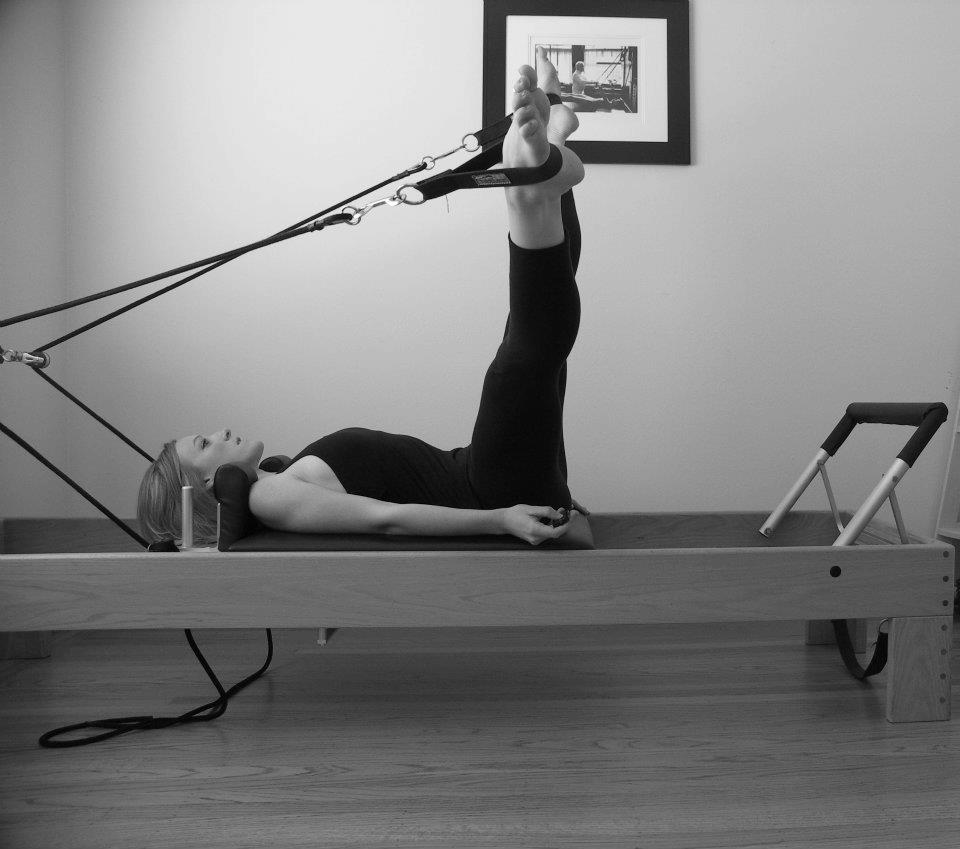
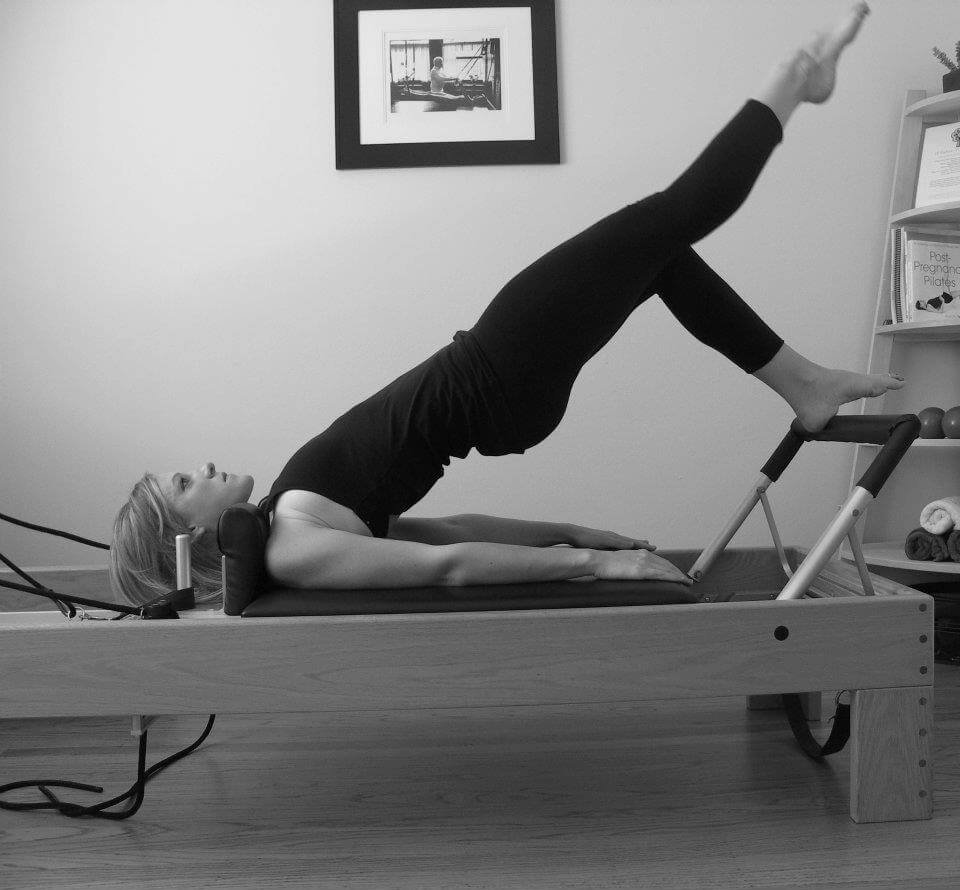



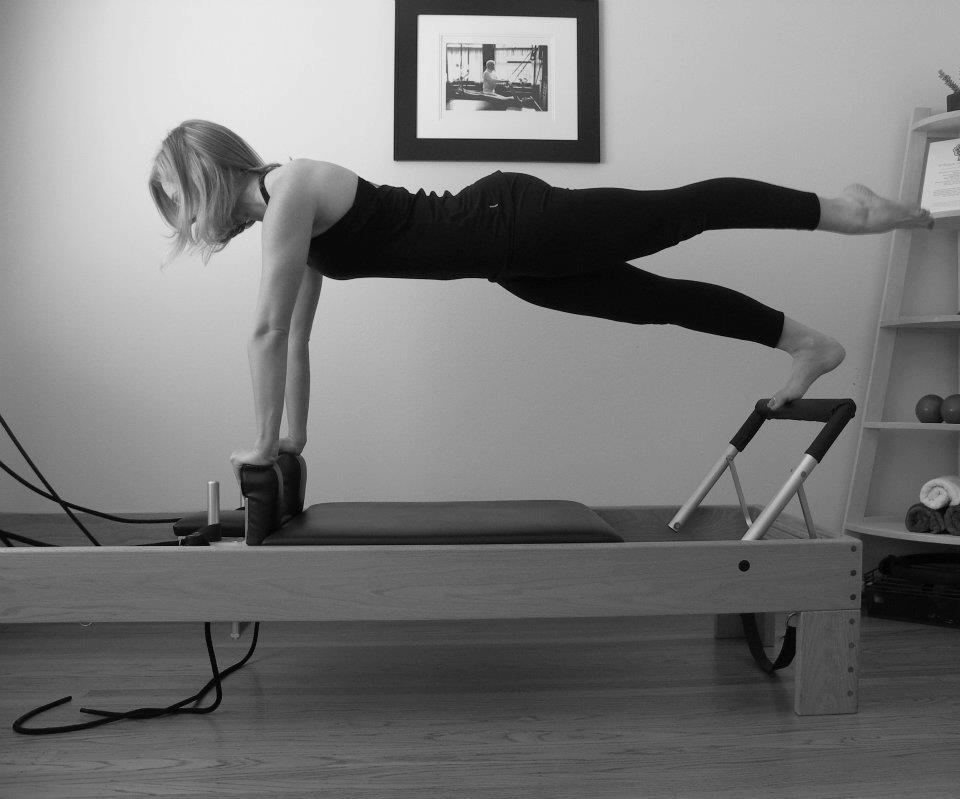

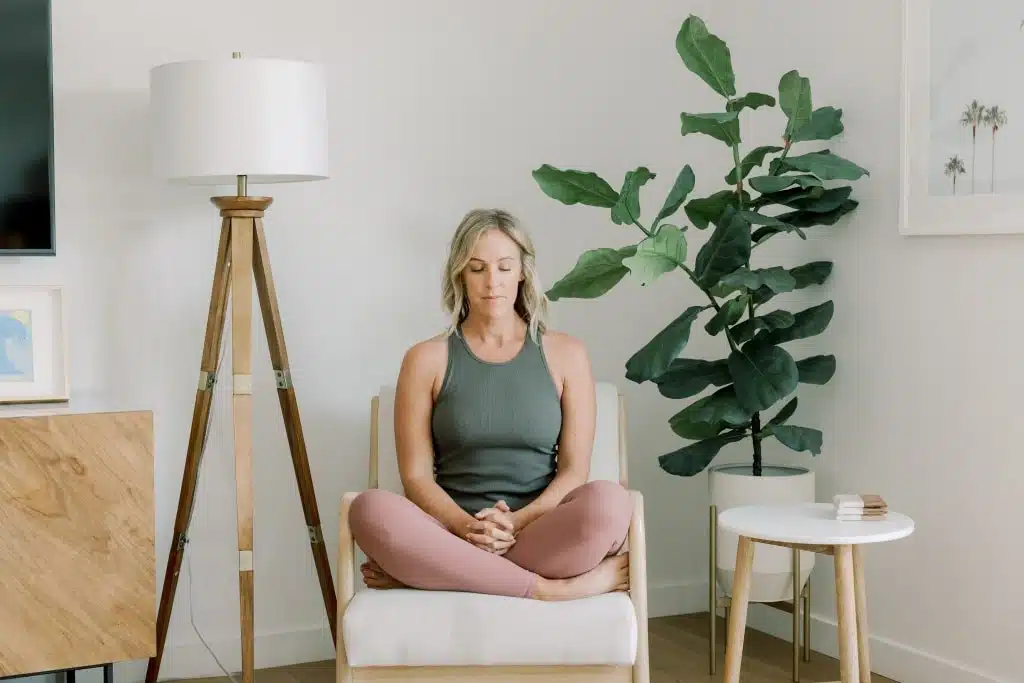

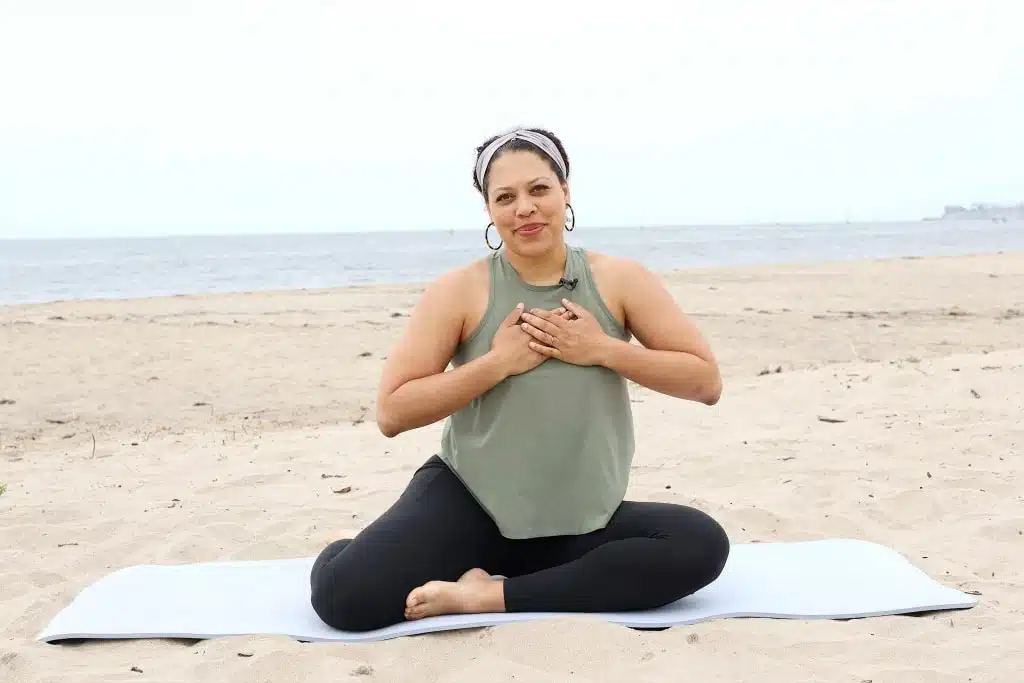
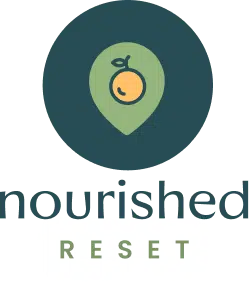

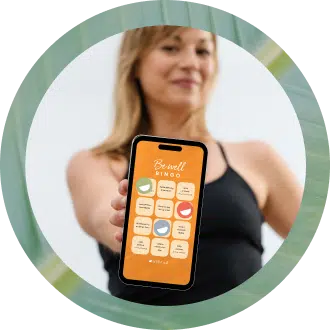
40 thoughts on “Q & A Wednesday: tips for starting a career in Pilates”
Robin, one question…as I am getting started as a pilates instructor and just teaching friends and family for free right now. What would one typically expect for pay as a starting instructor at a gym or teaching one on one clients? I’ve had a couple people ask what my prices are and I really have no idea where to start. I realize in different regions it would be different but a general idea would be great! Thank you!
Hi Laura,
Great question!
You’re right in that it varies widely by region and establishment. For example, at one gym I was paid $20 per hour to teach a group mat class, at another establishment I was paid $80 per hour (this is the exception but it is possible to find based on your strategy). The price per session is sometimes based on experience as well.
In California private sessions range from $75-100 per hour. If you work for yourself that profit all goes to you (and your business expenses of course). If you work for a gym/studio, they will likely take 50-60% of that. The perk of working for yourself is that you keep more of the money. But you have to take care of all of your own business expenses, equipment expenses and find your own clients. The perk of working for a gym/studio is that they often help get you set up with clients and provide a great environment, but you make less per hour.
Does this help? I can go into more detail if you like. 🙂
xo,
Robin
Great post!! So true! xo
Hi Robin! Great information! I have a question for you, not sure if you’ve addressed this before though? How/when did you decide to start growing your online business? And to build on that, what’s the ratio of time spent on your online business to how much it impacts your income, if you don’t mind me asking?
Hi Annie!
Great question. I haven’t really addressed the online side of my business. I could certainly write an entire post (or series) on that side of it all. 🙂 I started growing my online side of my business about 4-5 years ago. I started just by blogging because I wanted to share that I was passionate about making a change in the fitness industry. I didn’t want to be lumped in with every trainer that’s just focused on being skinny. 🙂 The time spend building my online business has been significant. It has taken a lot of work and a lot of time. I knew it was a long time goal of mine so that eventually I would have another opportunity for income/working with others that would allow me to live in different locations and be home more with my future kids. So now that is paying off in a big way. I now spend the majority of my time on the online side of my business simply due to my season of life. And also it’s has truly become my passion. If you’re interested I’d be happy to write a post about it to share more! xo
Thanks, Robin! I would love to hear more and hope you do end up writing a post about this!
hi Robin ! As you know I teach pilates right now and a variety of other classes. I am certified yoga fit level 2 and certified personal trainer group ex instructor. Do you have a preference or recommendation on which pilates certification would be best to go for ? I’d really like to do this! I love the way you have helped renew my love of pilates and teaching it ! Thank you !!!
Hi Emily! I love hearing that. 🙂 I go into detail about my certification recommendations in this post:
http://thebalancedlifeonline.com/pilates/how-to-become-a-pilates-instructor/
Hope it’s helpful! Let me know if you have other questions.
xo,
Robin
I am very interested in how you started your online business. I have been considering it for quite some time and have contribute (for free) to a few sites. I would like to read your journey and see if it is something I might be interested in. Thank you!
Hi Rachel. Good to know. I’ll share more soon! 🙂
Robin, Thanks so much for all the info, very helpful! One last question…Right now, I’ve just had mat training but plan on taking the rest of the courses by the end of the year. Do you recommend donig one on one training out of the gate or getting in group training first? I would like to offer one on one, but wasn’t sure with my limited experience, if this was something I should try or stick with group classes for while. I’ve heard it both ways and curious on your take? Thanks again, you are such a huge inspiration!
I think it’s up to you and your comfort level! I jumped into both right away. It was definitely a learning experience and looking back I had very little experience to draw from (obviously) so I probably wasn’t the best teacher at the time. But with anything, it takes time to learn! And the best way to learn is by doing. So as long as you feel like you are able to safely train clients then I don’t see a problem with diving in. I was always mindful of referring clients to other teachers if I felt their issues were beyond my experience at the time (back injuries, degenerative diseases, etc.) and asked other teachers for advice constantly. 🙂 I still do at times!
I really enjoyed reading this, very interesting! Honest, practical advice for anyone hoping to turn a passion into a viable career. Great food for thought. I think you have found your calling. You are a natural teacher 🙂 Congratulations on your success and thanks for all you do!
Hi Robin! Just wanted to comment that I love ur post (along with many others). I’ve moved 3 times in 4 years and have to keep starting over. It is a process and good to hear someone else relate. 🙂
Wish we could have known each other a little longer while we were in Denver. Much luck to ur future success and congrats on baby #2!!!
Oh it’s so hard isn’t it?? It’s a blessing to have a job that you can easily pick up again in a new state but the re-building is tough. Not only finding new clients but also starting over in relationships. I wish we could have crossed paths longer too! Hope all is well. 🙂
Thank you so much!! These answers are super helpful and very encouraging 🙂 You are such an inspiration!
Thank you so much! I’ve just started Pilates, and am interested in being an instructor as soon as possible! Thank you!
Hi Robin,
I hold a bachelor’s degree in physical therapy from India and I want to pursue my career in Pilates focusing mainly on the clinical aspect of it.There is a lot of information on the Internet and I am very much confused onto which course suits best for me.My main motive is to work in rehab settings.Could you please guide me here.
Thanks
Isha
Hi Isha!
I think all of the certifications I listed above would serve you well. But I worked in a physical therapy office for many years and most of the instructors were trained through Balanced Body. I’d also highly recommend the Pilates Conservatory with Pat Guyton. Best of luck!
Thank you so much for the immediate response Robin.I really appreciate that.Will def search for what you recommended.
Thanks
Isha
This article is the most accurate advice for anyone wanting to teach. This is a rewarding profession but not really a glamorous one. Earning a living only teaching Pilates is tough. Another side profession or job I recommend.
I’m in high school and considering being a pilates mat instructor after I graduate college and I have two questions:
First, in your how to become a pilates instructor post you said a mat certification cost about three hundred dollars, do you know of any programs where i can get certified fairly quickly, and are reputable?
Second, I’m interested in pilates but I live in a small town so there aren’t really classes where I live. Any tips on how I can learn pilates at home/online/on my own? Thanks.
Hello!
A reputable certification program should include:
-500+ hours of training, practice and student teaching (for comprehensive certification)
-Recognition from the Pilates Method Alliance
-Modules that take place over a period of months (not just a weekend or two)
A few that Robin highly recommends:
Body Arts and Science International (contemporary) – this is my training
Balanced Body University (contemporary) – I currently teaching in a BB studio and absolutely love it
Polestar Pilates (contemporary)
Physical Mind Institute (contemporary)
Peak Pilates (contemporary)
Power Pilates (classical)
Stott Pilates (contemporary)
Romana’s Pilates (classical)
There are many others but these are some of the most widely recognized programs that can be found across the country.
The Balanced Life offers great online instruction for Pilates. You might look into our free YouTube content, or consider joining the Sisterhood for exclusive access to our Workout Library!
Good luck as you explore the possibilities of a career in Pilates and fitness!
Hi Robin,
I know it’s a while since you wrote that this article but I want to say thank you for reminding me to be patient! I started teaching in June this year but had to take a break after some surgery. I have managed to set up two new classes at the local hospital that I work at but attendance can be really hit and miss, with tonight being my worst night yet. I felt like I was doing something wrong, even though people keep telling me I’m a good teacher and I have bookings for next week. Reading that it can take a year to get to where you want to be is quite a relief for me; at least I know that I’m not way off the mark.
Ones thing is for sure though…clients in the UK are not very dedicated to their exercise regime…how can I overcome this?
Kelly
Hi Kelly! Thank you for your message – and how wonderful that you have setup the new classes at your local hospital!
Robin offers business coaching services – please feel free to reach out to us at [email protected] for additional information!
Hi Robin, what a great post and good information for setting expectations. I have recently moved to a new state and there seems to be tons of pilates studios/Instructors which is diluting client numbers across studios. Lots of studios and all struggling equally. Most people are not certified and a couple are not honest about their certs. Is this common in different regions? How does one assimilate into this kind of environment?
Hi Robin, I am very much interested in being a Pilates instructor in Atlanta area.. which program would you recommend ? And I am scared of burning out in order to sustain myself financially? How Many classes is the normal to make decent living? Of at least 35-45K ??
Hi! Thanks so much for your question. There are SO many programs out there. When checking them out, her biggest recommendation is that the program is recognized by the Pilates Method Alliance. If a program isn’t recognized by PMA, it doesn’t mean it isn’t a good program, but you are more likely to get a job at a wider variety of studios in the future. As far as sustaining yourself financially, it all depends on what payment the studios offer you. Remember to take care of yourself first, so you can be the best instructor possible for your clients. 🙂
Hi loving your posts, I’m in the UK and I wondered if you are aware which are the best international qualifications to take – I’m looking into Stott currently ? Thank you.
Hi Leigh! Unfortunately, Robin isn’t sure of the best international programs. She likes Stott, though! She recommends you ask various studios what they require of their instructors. That way, you receive certifications that will give you the opportunity to apply for instructor positions. 🙂
Hi Robin,
I want to first thank you for such an informative article about how you transitioned to become a passionate pilates instructor. I think the last question that Kirsten asked was the one I was most curious about, and I think you answered most of what I wanted to hear and see. Although I still do not know whether or not I am capable of TEACHING people, I have had serious thoughts about changing careers. I’ve been doing physical fitness a bit more seriously during my off-work time but I am relatively new to pilates as an exercise. I recently read up on what pilates is and am quite interested about the potential it can bring to people’s routine. Coincidentally, you have also mentioned that you work with Equinox as an instructor. I’ve had thoughts on about signing up for a program with Equinox in later this year and I want to know if that would require me to give up some of my Fridays for work to spend time during the day for it. Is it similar to the program that you were in when you were working on your PMA? Thanks!
P.S. This is a male asking this so hopefully the qualifications to do this role is equal to both genders.
Hi Tim! I’m so glad this post has been helpful to you, and I’m so glad you’re interested in becoming an instructor. We think it would be great for more men to teach Pilates! If you are considering becoming a Pilates instructor, we would recommend you take several Pilates sessions to see if you enjoy this workout. If you don’t enjoy Pilates as a form of exercise, it will probably be difficult to teach it. When you go to classes, take them from a variety of different instructors and studios, because every instructor has a different teaching style. Robin isn’t familiar with the Equinox teacher training programs, as she didn’t get certified through them (she only worked at the gym). We recommend you reach out to your local Equinox to see what their schedules are like. Best of luck to you in this new endeavor, Tim! 🙂
hi Robin,
I am currently training to become a pilates instructor. I wondered if you can give some pointers what to write in application letters as I won’t have any experience yet? What would set me apart from all the other qualified and experienced instructors? Why would they employ a novice?
P.S. also some tips on fear and nervousness and how to overcome this when teaching your first class?
kind regards
Andrea
Hi Andrea! Thanks for your questions! Robin doesn’t have any experience reviewing application letters specifically, but did find that having a strong foundation in anatomy was helpful. Maybe you can ask an instructor of an in-person class you’ve taken to see if they have some personalized ideas for you. It’s completely normal to be nervous when teaching your first class! We would encourage you to have grace for yourself and know that it may take some time to increase your comfort level with teaching. Practice leads to progress! I might also check-in with others in your training program to see if they have any ideas or strategies for combatting nervousness. Good luck- we are cheering for you! 🙂
Awesome things here. I am very satisfied to look your post.
Thank you a lot and I’m having a look forward to contact you.
Will you kindly drop me a e-mail?
Hi Shawnee! Thank you for your message. If you ever need to get in touch with our team, please feel free to send us a message here: https://thebalancedlifeonline.com/contact/ Thank you!
Hi Robin,
I have been reading this amazing blog and thank you so much for your insights.
I have been looking at wanting to change careers. I am currently a Social Worker and have been thinking of getting into a career such as Pilates and helping people feel more confident in their own skin. I have however, not grown up doing pilates myself (I have only done like 2 classes, however enjoy the gym, working out and hiking for stress relief and self care). I was wondering whether it’s valid or not to be teaching pilates having not really done many myself.
Hi Alicia, how exciting that you are thinking about teaching Pilates! We actually have a blog post with more information about becoming an instructor that you might find helpful. Will include the link here! ❤️ https://thebalancedlifeonline.com/how-to-become-a-pilates-instructor/
This post is validating in that teaching 20-30 hours is considered full time for a pilates instructor. I work for a gym that has a separate pilates studio. I teach full time (approx 23-28 sessions per week) but according to gym standards, I don’t meet the minimum “hours” (they only count physical teaching hours) to be qualified for healthcare (30/week or approx 130 per month). I do all my own scheduling/rescheduling, programming, client touch ups and follow ups, emails, calls and I pay for my own continued education. There is a bonus structure that I definitely hit, but upon inquiry as to why I haven’t received the bonus they said it’s because the group classes I teach (8-10 per week) don’t count toward that number. Only private and semi-private sessions do. Even though the gym/studio makes more profit on a group class per hour than a private. Fitness is a messed up industry to work in!
We are sorry for the stress and concern that this must cause for you! We hope that you can still enjoy the positive impact you are having on your clients and celebrate all of your hard work and dedication!